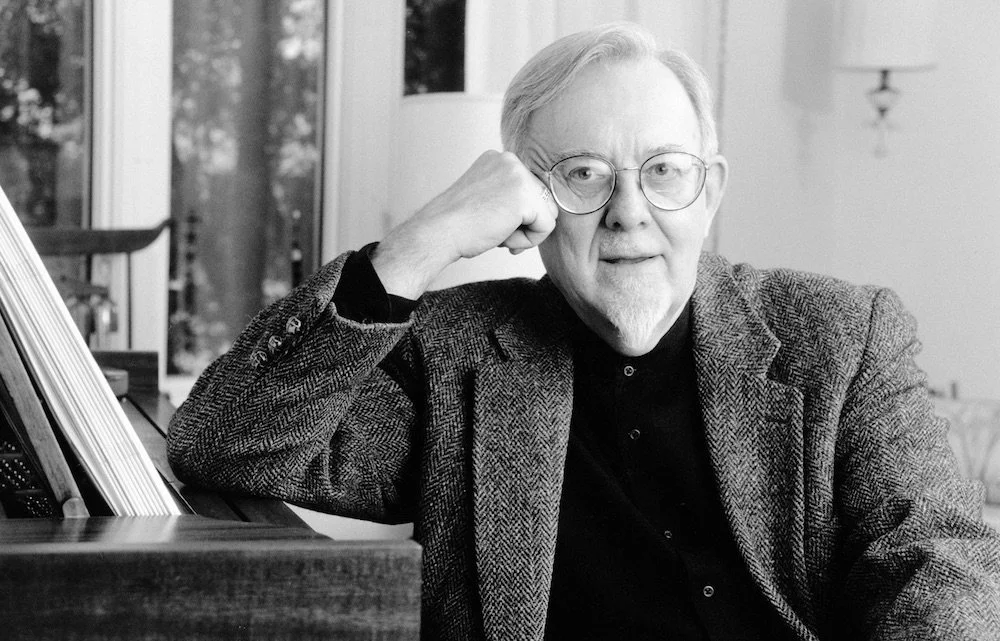From the Archives: "Why Christians Sing"
Each month, our blog features articles from the archives of Liturgy. Our goal is to share the wisdom from decades past so that we might celebrate the work and insights of these excellent ministers and scholars.
Professor of music, Carl Schalk, and composer of “Day of Arising,” “God of the Sparrow,” and “Thine the Amen,” (ELW hymns #374, 740, and 826, respectively) to name just a few of his many hymns, explores in this article why music is such a vital part of Christian worship. He looks at the importance of music for teaching morality, for stirring up emotions, for serving as a specific kind of “entertainment,” and for educating about the faith. Schalk then outlines practices for good use of music in worship, including proclamation of God’s word, stressing the relationship between the congregation’s song and the scripture readings. Given the vast array of uses to which music in worship is put in our time, his insights and admonitions offer much food for thought. –– Melinda Quivik
Selected Quotes from
“Why Christians Sing”
~ ~ ~
The joining of music with Christian worship is not the result of historical accident. It is rather the deliberate result of the church’s concern for the faith joined together with an understanding of the power of music to move our minds and hearts. At the center of our music-making stand the church musicians, the latter-day psalmists who carry forward the church’s musical tradition. They teach, encourage, nurture, and help congregations––sometimes even recalcitrant congregations––to a fuller understanding and celebration of the faith.
~ ~ ~
Thus, music can be understood to teach, to exhort, to edify, and to entertain, but the boundaries of Christian song are too tightly drawn in places that limit the functions of music to any one of these. Theological presuppositions, the piety of the assembly, and the musicians’ art interact with other factors to define the paradigms of Christian song in any given age.
~ ~ ~
In Luther’s view, music is a good and gracious gift of the creator, a gift that is ours for the praise of God and the gospel of Christ. Thus, Luther, alone among the sixteenth century reformers, unhesitatingly commended the use of music in the nourishment of the Christian life. In contrast to Calvin, who only grudgingly permitted music a place in corporate worship, and to Zwingli, who banished it entirely from corporate worship, Luther accorded to music the highest place next to theology.
~ ~ ~
Church music can never be simply a part of the wrapping; rather, it is part of the unwrapping. Either music contributes to faithful proclamation and witness or it detracts from it. Music in worship is part of the ministry of the word.
~ ~ ~
Church musicians must give primary attention to two kinds of texts: 1.those that follow the church year and the lectionary; and 2. those that are designed to enhance specific liturgical moments in the celebration of particular feasts.
~ ~ ~
Much of the music heard in churches today can be characterized by its trite rhythm and treacly harmony, and by its striving for the easy effect. A combination of large and impressive size combined with cheap materials implies contempt for craftsmanship. The materials of music are so often overlaid with a patina of surface gloss and superficial attractiveness that they do a disservice to the liturgy.
~ ~ ~
Carl Schalk (1929–2021), associate professor of church music for almost forty years, at Concordia College, in River Forest, Illinois, was a well-known lecturer, editor, and clinician in the church music field and the author of many choral compositions and hymn settings for congregational use.
Carl Schalk, “Why Christians Sing,” Liturgy 3, no. 3 (1983): 7–16.
If you would like access to this article, please follow this link.
